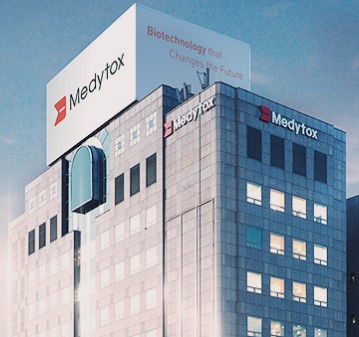Medytox has recently received a series of patent invalidation or registration refusal decisions related to its new botulinum toxin (BTX) product at home and abroad. Market attention is on how this will affect the company’s biologics license application (BLA) for the new BTX, MT10109L, scheduled for this year.

According to industry sources, the U.S. Court of Appeals for the Federal Circuit invalidated Medytox's patent on the “long-lasting effect of new botulinum toxin formulations” on June 27, local time.
The Federal Circuit affirmed the stance of the U.S. Patent Trial and Appeal Board (PTAB) and the U.S. Patent and Trademark Office (USPTO), which had previously invalidated the Medytox patent.
In 2019, Galderma filed a patent invalidation lawsuit against Medytox and the PTAB found the patent invalid. The USPTO subsequently denied Medytox’s request for reconsideration.
The invalidated patent (US10143728) was registered by Medytox in 2018 and claims long-lasting effects of BTX preparations that do not contain animal-derived ingredients or recombinant human albumin.
In this regard, Medytox, which is preparing to apply for a U.S. marketing authorization for its non-animal liquid BTX product MT10109L this year, announced its position on the patent invalidation decision on its website.
Medytox said MT10109L's entry into the U.S. market remains on track.
"We already have three U.S. registered patents, including one that covers a broader scope than the patent at issue," Medytox said in a statement. “The invalidation proceedings against our patent have no impact on the production and sale of our toxin formulations developed with this technology."
The company went on to say that additional patents are pending to build a strong patent barrier and it would continue to take a proactive and flexible approach by filing a “continuation application.”
In May, Medytox received a “patent rejection” decision on the MT10109L patent in Korea.
The Korean Intellectual Proporty Office (KIPO) had rejected Medytox's patent for "long-lasting effect of a novel BTX preparation" (application number 10-2022-7016920) in December last year.
In February this year, Medytox reapplied for patent registration through an opinion letter, and on May 9, the KIPO issued another rejection.
Medytox argued that the increased duration of the effect compared to AbbVie's (then Allergan's) BTX product Botox was sufficient to establish inventiveness, but the KIPO held that it is the unique function of BTX to improve symptoms such as wrinkles and that the effect lasts up to 16 weeks. The KIPO also said that MT10109L is only a specific formulation of a specific preparation.
In particular, the KIPO noted that the medicinal effect is due to the composition as a whole, so it cannot be concluded that Medytox's claimed long-lasting effect is due to the absence of animal albumin, which is one component of the composition.
It also concluded that Botox has a wrinkle improvement effect and that the improvement lasted up to 16 weeks, so the difference with MT10109L did not appear to be significant.
Earlier this year, Medytox accompanied President Yoon Suk Yeol in a business delegation to the United Arab Emirates earlier this year and signed a memorandum of understanding (MOU) with Dubai Science Park (DSP), owned by Tecom Group, a state-run company in Dubai, to build a plant to produce MT10109L in Dubai.
Related articles
- Prosecutors reopen probe into Daewoong's alleged theft of Medytox's BTX strain
- [Top K-Pharma Analysis ⑭] Medytox's market cap doubles in 4 months
- Prosecutors indict Hugel, Medytox for allegedly selling botulinum toxin illegally
- Medytox wins court battle against regulator over BTX license revocation
- Regulator, Medytox enter 2nd round of legal battle on 'indirect export' of BTX
- US patent court denies Hugel’s petition against Medytox BTX patent

